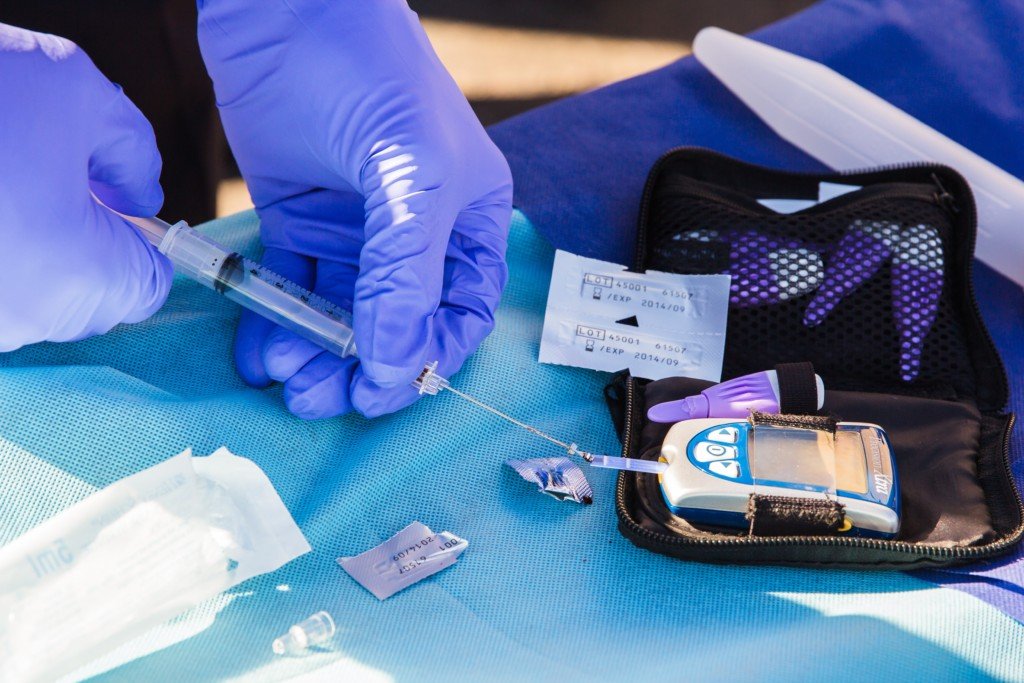|
LISTEN TO POST:
|

“Prevention is better than cure.”
Desiderius Erasmus
The global burden of non-communicable diseases is increasing dramatically worldwide. It is imperative that we take a serious look at our health and personal choices. A few lifestyle changes can go a long way to reduce one’s risk of contracting non-communicable diseases. In this post, I’ll discuss diabetes and some ways to help prevent your risk of getting the disease.
What is diabetes?
Diabetes is a condition of chronic high blood sugar in the body. It is more or less described as a cardiovascular disease because of its impact on blood vessels. With blood vessels in every part of the body, the effect of diabetes can be felt in every organ system in the body—from the head (stroke, blindness) to the toe (diabetic foot leading to amputation).
Diabetes mellitus
There are several types of diabetes. But, the commonest type with modifiable risk factors that is driving the global non communicable disease burden is type 2 diabetes mellitus. Many people are at risk of developing type 2 diabetes. However, little changes in lifestyle can help you reduce your risk of developing diabetes. Let’s look at them.
1. Regular physical activity
It is well-documented that regular exercise helps to improve your blood sugar levels. Regular exercise makes your body sensitive to insulin, the hormone produced in your body to help control blood sugar. Doctors advise that individuals engage in moderate intensity physical activity like brisk walking or running for, at least, 30minutes and 5 days per week. It is also beneficial to do resistance exercises like lifting weights about 2-3 times a week. For those trapped in long periods of inactivity such as office work, breaking up the bout of inactivity every 30minutes by simply standing up and taking short walks can also be beneficial in improving your blood sugar.
2. Lose weight
It is important to find out if your weight is healthy. This can be done by measuring your Body Mass Index (BMI), the ratio of your weight to height (use online tool). You also need to measure your waist circumference too as this shows your abdominal fat levels (use online tool). This can help you determine if you are at risk of insulin insensitivity. If your weight is unhealthy, even a small decrease in your weight can be vital to your overall health towards preventing communicable diseases. It may be essential to join a weight loss program, speak to your doctor about this.
3. Check your diet
Food rich in fibre slows absorption in your intestines and this helps to regulate blood sugar. Eating fibre rich diet makes you full early. Hence, you eat less. Fibre rich diet reduces your risk of developing hypertension which is also a risk factor for developing diabetes. Alongside increasing fibre in your diet, eating healthy unsaturated fats like olive, sunflower and fatty fish: salmon, mackerel, sardines, helps reduce your blood cholesterol levels. High cholesterol is bad for your blood vessel health. Remember, diabetes can be described as a cardiovascular disease. It is advised that half of your food plate should be fruit and non-starchy vegetables. A quarter should be whole grains (oats, quinoa, brown rice, etc.) and the last quarter, proteins. Also, limit beverages with high sugar contents and increase water intake. Water should be your main “beverage”.
4. Regular Health Checks
It is vital to see your doctor for regular check ups. At least, annually. This helps to identify worrying symptoms and signs early so that measures can be put in place to prevent further deterioration. Those with high risk of the disease would require quite frequent health checks so that early treatment is instituted.
I hope these tips are helpful and wish you a healthy long life. Enjoy life to the fullest!











